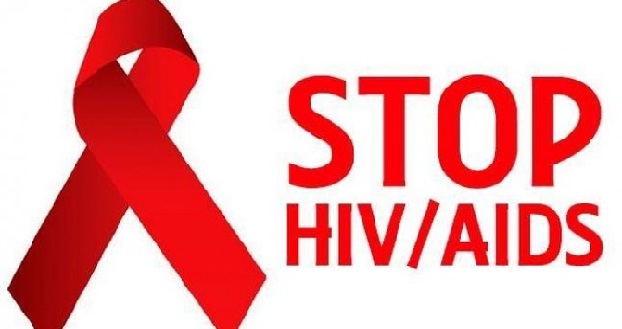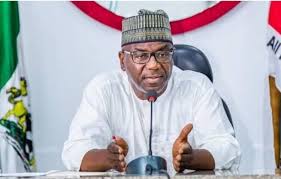Health
WHO Advocates Right of Women, Girls to Stop New HIV Infections

Dr Matshidiso Moeti, World Health Organisation (WHO) Regional Director for Africa, says the rights of women and girls, and gender equality, must be the focus to stop new HIV infections.
Moeti said this in her message to mark the 2020 World AIDS Day, globally celebrated on Dec.
1 to raise awareness of the pandemic caused by the spread of HIV infection.According to her, children living with HIV are not being adequately identified for treatment.
Moeti said girls and women aged 15 years and 24 years accounted for 37 per cent of all new HIV infections, and stigma and discrimination especially against key populations continue to create barriers to service access.
“Despite these challenges, significant progress is happening in African countries. 2020 is a milestone year towards ending AIDS epidemics and 81 per cent of people living with HIV know their status.
“Among them, 70 per cent of adults and 53 per cent of children are receiving lifelong antiretroviral therapy (ART).
“Eighty-five per cent of pregnant and breastfeeding women living with HIV are on ART, which protects their health and prevents HIV transmission to their newborn infants.’’
Globally, Moeti said “there are 38 million people living with HIV and 67 per cent of them are living in the WHO African Region.
“In 2019, more than one million people in the region were newly infected with HIV, accounting for 60 per cent of the global total, and sadly, 440,000 people in the region died from HIV-related causes.”
She, however, urged communities, especially people living with HIV, to be proactive in their self-care and in understanding how to prevent the spread of the infections.
“This World AIDS Day let us all demand global solidarity and shared responsibility to maintain HIV services during the COVID-19 pandemic and beyond as we strive to achieve the 2030 targets.
“The theme of World AIDS Day this year is “global solidarity and shared responsibility” because in the context of the COVID-19 pandemic we are seeing how important it is for the world to come together.
“We have seen how important for world to come together with determined leadership from governments and communities to sustain and expand access to essential services, including HIV prevention, testing, treatment and care.
“The pandemic is making it even more challenging for countries to provide these services, particularly in areas affected by conflicts, disasters, outbreaks and rapid population growth.
“This is on top of the fact that in the African Region new HIV infections and AIDS-related deaths are not reducing fast enough to meet the Sustainable Development Goal target of ending AIDS epidemics by 2030,’’ the regional director said.
She commended the governments, partners and communities who had contributed to the progress on HIV in the Region, and come up with innovative ways to keep services going during the COVID-19 pandemic.
“For example, young people living with HIV in Zambia are advocating for the elimination of stigma, adherence to HIV treatment, access to sexual and reproductive health services, and mental health support.
“They are also contributing to the national COVID-19 response by creating and disseminating health messages, busting myths, and raising awareness.
“In Cote d’Ivoire, Nigeria and Senegal, women living with HIV are serving as community pharmacists, visiting hard to reach semi-urban and rural areas to facilitate the home delivery of HIV treatment and medicines for other diseases.
“They are helping to ensure that no one is left behind during the COVID-19 crisis,’’ she said.
To sustain and accelerate the gains made, Moeti urged governments and partners to come together, with the same level of urgency and leadership demonstrated in response to COVID-19, to increase domestic funding and strengthen health systems.
“There must be global solidarity and shared responsibility among all stakeholders to ensure integrated, people-centred, quality care and an uninterrupted supply of essential commodities for HIV services,’’ she said
The New Agency of Nigeria (NAN) reports that Dec. 1 every year, the global community comes together to mark World AIDS Day to show support for people living with HIV and to remember those who have lost their lives to AIDS.
Health
Kwara Govt. Urges residents to Prioritize Oral Hygiene

The Kwara State Government has urged residents to prioritize oral hygiene by maintaining the health of the teeth, gums, and other tissues in the mouth.
Dr Amina El-Imam, the Kwara State Commissioner for Health, made the call on Wednesday in Ilorin during the opening ceremony of a three-day free oral health outreach.
The outreach was organized by the state government in partnership with Pharma Deko PLC.
Represented by the Director of Public Health, Dr Oluwatosin Fakayode, the commissioner described oral health as a vital but often overlooked aspect of overall healthcare.
She reaffirmed the government’s commitment to improving oral health across the state, stressing that it was a key component of general wellbeing.
“Oral health is the cornerstone of overall health, yet it is often neglected.
“Poor oral hygiene contributes to several non-communicable diseases, though its effects are gradual and often unnoticed until they become serious,” she said.
El-Imam commended the recent renovation and equipping of the state’s dental clinic and encouraged residents to take full advantage of the outreach by accessing free dental checks and receiving professional guidance on oral hygiene.
Also speaking, the Managing Director of Pharma Deko PLC, Mr Ishola Olukayode, expressed the company’s commitment to supporting oral health in Nigeria.
He warned that many people unknowingly use harmful substances on their teeth due to a lack of awareness, putting their health at risk.
Olukayode stressed that oral hygiene extended beyond brushing, highlighting the importance of regular professional check-ups and community education.
Delivering a lecture at the event, Deputy Director of Public Health, Dr Kasali Ajao, noted that brushing alone addressed only about 40 per cent of oral hygiene needs.
He recommended professional procedures such as scaling and polishing at least twice a year for comprehensive oral care.(NAN)
Health
Nigeria Requires N2.2trn to Eliminate Cervical Cancer by 2030 – Prof. Adewole

Prof. Isaac Adewole, Chairman of the National Task Force on Cervical Cancer Elimination (NTF-CCE), says Nigeria will require N2.2 trillion to implement comprehensive cervical cancer interventions between 2026 and 2030.
Adewole, a former Minister of Health, made this known on Tuesday in Abuja during the launch of the Partnership to Eliminate Cervical Cancer in Nigeria (PECCiN), an initiative of the NTF-CCE.
The initiative, launched at the State House by the First Lady, Sen.
Oluremi Tinubu, aims to accelerate Nigeria’s achievement of the World Health Organisation’s (WHO) 90-70-90 targets for cervical cancer elimination.reports that PECCiN seeks to catalyze multi-sectoral efforts to prevent, screen, and treat cervical cancer through sustained coordination, resource mobilization, and scale-up of service delivery.
According to Adewole, the interventions are grouped into three categories: primary prevention, secondary prevention, and tertiary treatment.
He explained that the Human Papilloma Virus (HPV) vaccination programme will be delivered through fixed sessions at health facilities and outreach-based immunisation campaigns.
“The total direct implementation cost over the five years is estimated at N387.52 billion,” he said.
“Including administrative and supervisory costs, the total cost of HPV vaccination will amount to N426.28 billion.”
He said cervical cancer screening over the same period is estimated to cost N351 billion, targeting 14.4 million women.
On tertiary treatment, Adewole noted that nearly 300,000 women will require care for invasive cervical cancer between 2026 and 2030.
“The country is projected to spend approximately N1.42 trillion on treatment, with the cost per patient dropping from N8.7 million in 2026 to N4.1 million by 2030,” he added.
In spite of other competing priorities, he urged investment in cervical cancer elimination due to its high return on investment.
“We seek your commitment and support to implement robust cervical cancer elimination interventions in Nigeria.
“This will ensure that every woman is financially protected throughout her life and no eligible adolescent is left behind in HPV vaccination.”
Dr Muyi Aina, Executive Director of the National Primary Health Care Development Agency (NPHCDA), said the Federal Government launched the HPV vaccine campaign on Oct. 24, 2023, targeting girls aged 9 to 14.
He announced that 14 million girls had already received the vaccine.
“This milestone is unprecedented globally and was achieved through strong leadership from President Bola Tinubu, the support of the First Lady, and collaboration across ministries and communities.
“The media also played a key role in spreading awareness and engaging civil society.”
Aina reaffirmed the agency’s commitment to sustaining the programme, stating that the HPV vaccine has been incorporated into the routine immunisation schedule and that primary healthcare centres are being revitalised to support service delivery.
Prof. Usman Aliyu, Director-General of the National Institute for Cancer Research and Treatment (NICRAT), described cervical cancer as a serious burden affecting mothers, sisters, caregivers, and peers across communities.
He said the growing burden prompted the development of the National Strategic Plan for the Prevention and Control of Cervical Cancer (2023–2037).
“This plan, reflecting best practices and local realities, serves as our national roadmap for cervical cancer elimination,” he said.
Aliyu added that NICRAT has constituted a national taskforce comprising experts and stakeholders to drive implementation.
He also highlighted efforts to promote innovative research, harmonise treatment protocols, and expand culturally sensitive awareness and screening campaigns.
The event featured the presentation of the National Cervical Cancer Elimination Plan and the unveiling of the PECCiN partnership logo. (NAN)
Health
Otu’s Wife Champions Healthcare Access for 500 Elderly Citizens

The Wife of the Cross River Governor, Mrs Eyoanwan Otu, has sponsored the enrollment of 500 senior citizens, aged 70 and above, into the Cross River Health Insurance Scheme.
The gesture, which covers the premiums of the elderly citizens for two years, targeted the vulnerable senior citizens in the 18 Local Government Areas of the state.
The Director General of the agency, Mr Godwin Iyala, described the initiative as “a significant milestone in the first lady’s humanitarian outreach”.
According to Iyala, the first lady had already made full financial commitment to cover the 500 beneficiaries for the next two years.
“This initiative prioritises our elderly population, many of whom had spent decades serving their families and communities.
“Her Excellency has once again demonstrated her deep sense of empathy and leadership.
“The ripple effect of this act is far-reaching because when the aged are cared for, families are relieved, and the moral fabric of our society is strengthened,” he said.
He commended Otu for the initiative, describing it as a lifeline for elderly citizens, particularly those in the rural areas, who face significant barriers in accessing healthcare.
Iyala stated that the Agency would begin immediate enrollment of the beneficiaries into the health insurance database, to ensure they begin to enjoy prompt and uninterrupted access to medical services.
He further said that the initiative was expected to significantly ease the burden of healthcare cost to elderly citizens, offering them a renewed sense of dignity and security in their twilight years. (NAN)



























